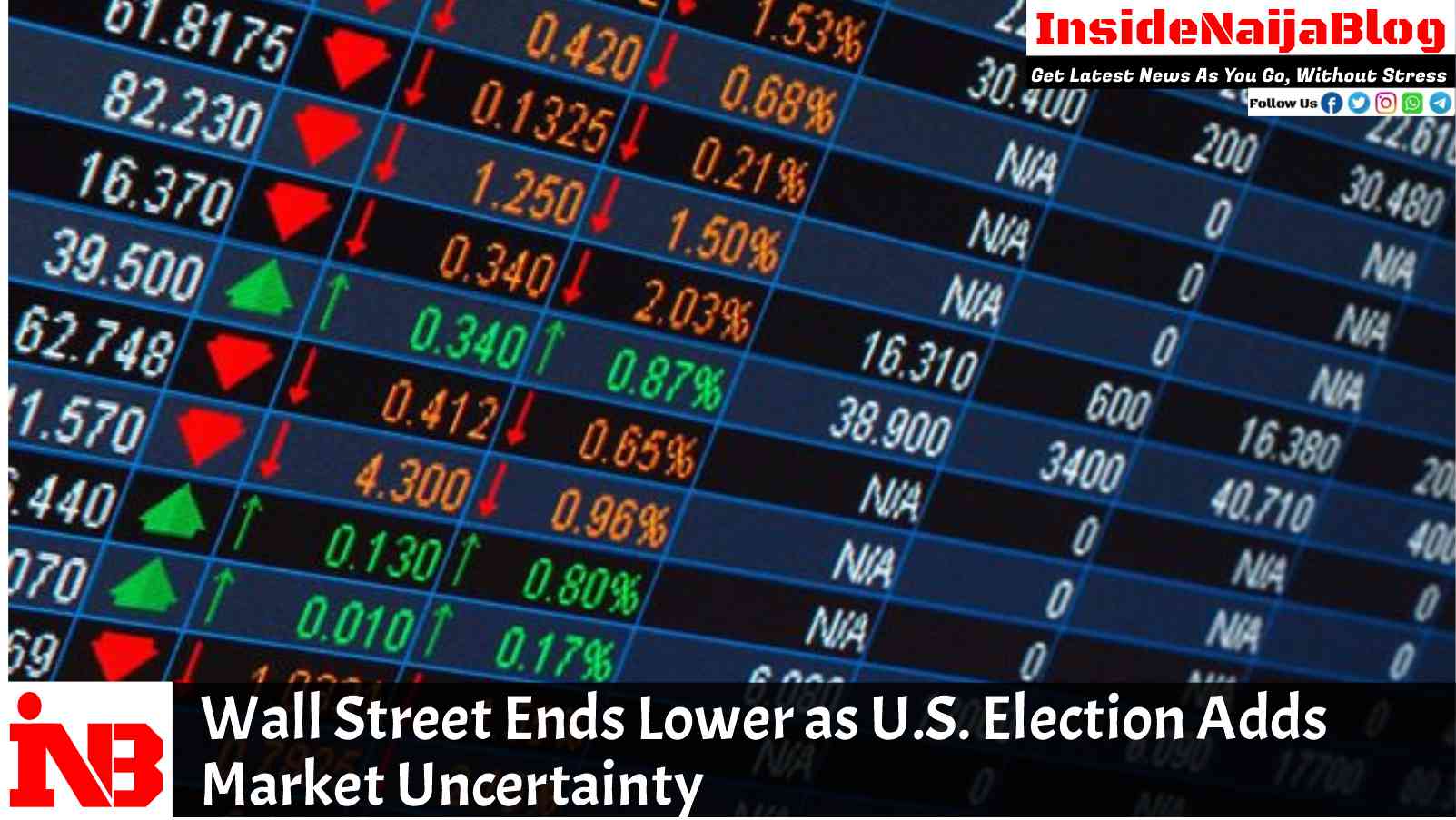On Monday, Wall Street stocks closed in the red after a session marked by fluctuations as investors braced for potential turbulence tied to the upcoming U.S. presidential election. With in-person voting set for Tuesday, Vice President Kamala Harris and former President Donald Trump launched a last wave of campaigning in critical swing states, where polls show a tightly contested race.
The Dow Jones Industrial Average dropped 0.6%, settling at 41,794.60. The S&P 500 dipped 0.3% to 5,712.69, and the Nasdaq Composite also fell by 0.3% to close at 18,179.98. Analysts noted that the election’s implications on tax, trade, and sector-specific policies have heightened market sensitivity, with investors anticipating fluctuations until the political picture becomes clearer.
Beyond the election, the Federal Reserve’s upcoming decision on interest rates has added to the cautious sentiment, with markets broadly expecting a quarter-point rate cut on Thursday. Additionally, Chinese policymakers are preparing for an economic meeting that could introduce a significant stimulus package, offering another point of interest for global markets.
In corporate news, Constellation Energy saw its shares plummet by 12.5%, along with other nuclear power-related stocks, after U.S. regulators denied a proposal to supply nuclear power to an Amazon data center. This decision raised concerns about the viability of similar projects across the sector.
Meanwhile, Boeing shares edged up 0.3% as around 33,000 unionized machinists in the Seattle area prepared to vote on a new contract proposal. A favorable vote could end a more than seven-week work stoppage and allow Boeing to resume production at two facilities.
Hotel giant Marriott International reported lower profits, resulting in a 1.6% decline in its stock. Analysts attributed the weaker performance to China’s economic slowdown and a decrease in U.S. leisure travel, which together dampened the company’s overall earnings.
With so many critical events unfolding this week, investors remain watchful, balancing between U.S. election developments, economic moves in China, and signals from the Federal Reserve. The confluence of these factors has contributed to an atmosphere of caution and unpredictability in the financial markets.




